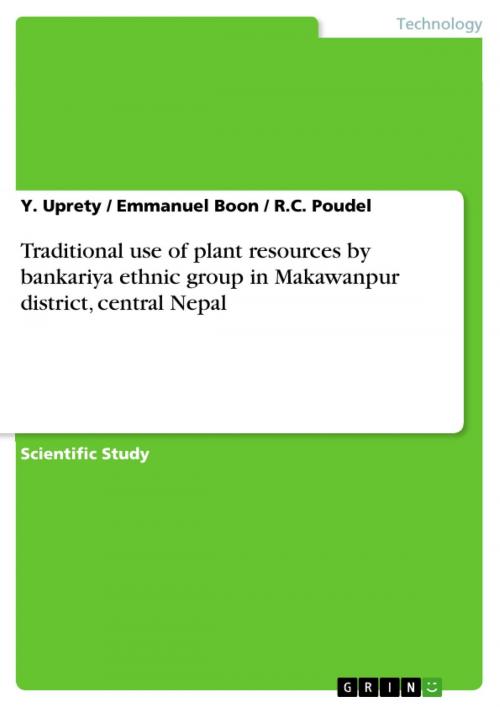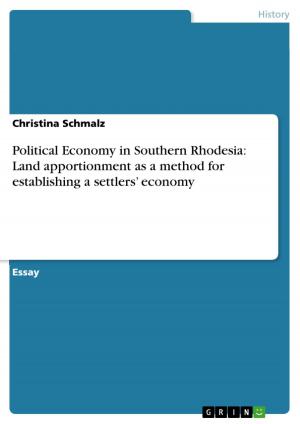Traditional use of plant resources by bankariya ethnic group in Makawanpur district, central Nepal
Nonfiction, Science & Nature, Nature, Environment, Environmental Conservation & Protection| Author: | Y. Uprety, Emmanuel Boon, R.C. Poudel | ISBN: | 9783638049412 |
| Publisher: | GRIN Publishing | Publication: | May 14, 2008 |
| Imprint: | GRIN Publishing | Language: | English |
| Author: | Y. Uprety, Emmanuel Boon, R.C. Poudel |
| ISBN: | 9783638049412 |
| Publisher: | GRIN Publishing |
| Publication: | May 14, 2008 |
| Imprint: | GRIN Publishing |
| Language: | English |
Scientific Study from the year 2008 in the subject Environmental Sciences, grade: none, Vrije University Brussel (Human Ecology Department), 32 entries in the bibliography, language: English, abstract: An ethonobotanical study was conducted to document the traditional use of plants and to find out the potential economic value of plants used by the indigenous 'Bankariya' people of Central Nepal. Personal interviews and group discussions were conducted to gather information on the indigenous knowledge of this ethnic group. A checklist of 'categories of plant use' was developed and used to identify, categorize and document plant species in the Twanrakhola community. Altogether, 109 plant species belonging to 49 families and 84 genera used for a wide range of purposes in the community are recorded. The people are highly dependent on forest and forest products. Because of their long experience with forests, the 'Bankariya' people have acquired rich knowledge about the utilization of plant resources in various ways. The Twanrakhola community harbours a high diversity of medicinal plants and wild edible plants. Despite the gradual economic and socio-cultural transformation in the life style of the community members because of globalisation, the Bankariya people still possess substantial knowledge of plants and their uses. Sustainable harvesting of and trade in medicinal and wild edible plants could be a significant source of subsistence and income generation for the local population.
Scientific Study from the year 2008 in the subject Environmental Sciences, grade: none, Vrije University Brussel (Human Ecology Department), 32 entries in the bibliography, language: English, abstract: An ethonobotanical study was conducted to document the traditional use of plants and to find out the potential economic value of plants used by the indigenous 'Bankariya' people of Central Nepal. Personal interviews and group discussions were conducted to gather information on the indigenous knowledge of this ethnic group. A checklist of 'categories of plant use' was developed and used to identify, categorize and document plant species in the Twanrakhola community. Altogether, 109 plant species belonging to 49 families and 84 genera used for a wide range of purposes in the community are recorded. The people are highly dependent on forest and forest products. Because of their long experience with forests, the 'Bankariya' people have acquired rich knowledge about the utilization of plant resources in various ways. The Twanrakhola community harbours a high diversity of medicinal plants and wild edible plants. Despite the gradual economic and socio-cultural transformation in the life style of the community members because of globalisation, the Bankariya people still possess substantial knowledge of plants and their uses. Sustainable harvesting of and trade in medicinal and wild edible plants could be a significant source of subsistence and income generation for the local population.















